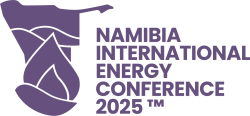
Luanda, Angola — With several large-scale oil and gas projects on the horizon in Angola and a 2025 limited tender poised to kick off exploration and development, the critical role of improving the distribution of oil products in the country will take center stage in the coming years.
As such, Angola is leveraging industry-wide reforms to not only attract new investments across its oil and gas industry, but to unlock a wealth of opportunities for both local and international players.
During the Angola Oil & Gas (AOG) 2024 pre-conference program – taking place ahead of the main event on October 1 – the Petroleum Derivatives Regulatory Institute (IRDP) will provide an update on the state of the regulatory environment in the country’s oil and gas downstream sector. As the body responsible for regulating the importation of petroleum products in Angola, the IRDP will lead a workshop on the country’s downstream oil and gas industry, setting the stage for deals and discussions during the main conference agenda.
AOG is the largest oil and gas event in Angola. Taking place with the full support of the Ministry of Mineral Resources, Oil and Gas; national oil company Sonangol; the National Oil, Gas and Biofuels Agency; the African Energy Chamber; and the Petroleum Derivatives Regulatory Institute, the event is a platform to sign deals and advance Angola’s oil and gas industry. To sponsor or participate as a delegate, please contact [email protected].
The IRDP has been instrumental in stabilizing Angola’s petroleum market by balancing petroleum imports and local refining. While the country’s resources have historically been exported as unprocessed crude, national efforts to enhance value addition through the development of downstream infrastructure is set to turn this trend around. Three new refining facilities are currently under construction while the Luanda refinery completed an upgrade in 2022 – boosting gasoline production to 450,000 tons per year.
The first phase of the Cabinda Refinery – with a capacity of 30,000 bpd – will come online by the end of 2024. Construction is two-thirds complete, with full operational capacity for the first phase expected by mid-2025. The 100,000 bpd Soyo Refinery is also anticipated to come online in 2025 while the 200,000 bpd Lobito Refinery – poised to be Angola’s largest – expects operations to commence in 2026. Following the refineries’ completion, Angola’s capacity will increase to over 400,000 barrels per day (bpd), representing a major boost to the market.
In recent years, the Angolan government has implemented a series of measures to enhance the investment landscape, with regulatory reforms and supporting policies laying the foundation for billion-dollar deals in the oil and gas space. Instituted reforms include optimizing a focus on deepwater projects, offering attractive terms for onshore exploration and incentivizing local Angolan companies. Additional measures include the establishment of the New Gas Consortium to enhance gas exploration; restructuring the national oil company Sonangol; and the establishment of the IRDP.
Amidst regulatory reform, the IRDP-led Angola’s Downstream Potential technical session will provide attendees with a better understanding of the critical role that a practical, feasible and fair regulatory framework plays in efficiently developing the downstream sector. The institute will showcase the work happening to uphold the highest specification of oil products in the country and scientific projects in the pipeline. The session will also provide a full update on the state of the oil and gas downstream sector in Angola, taking into consideration the regulatory framework as well as the volumes and consumption of oil derivatives.



